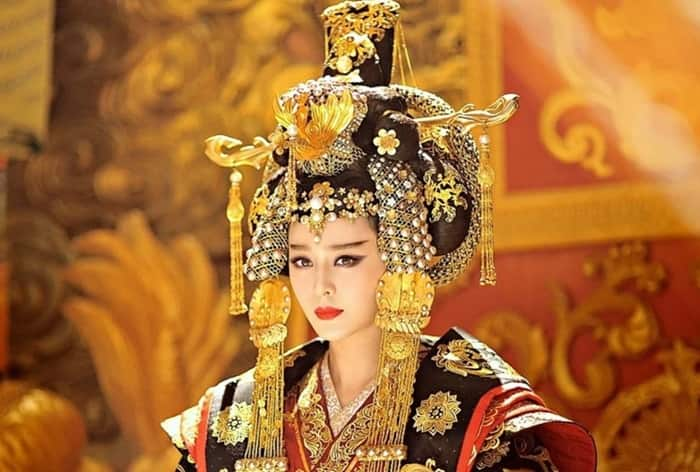She was often remembered as a shrewd and cunning ruler, used both political skill and, at times, ruthless tactics to strengthen her grip on power.

When people think of the world’s richest individuals, names like Mukesh Ambani, Elon Musk, Jeff Bezos, Bernard Arnault, and Mark Zuckerberg often come to mind. However, long before any of them, there was a woman whose wealth surpassed them all — Empress Wu Zetian of China’s Tang dynasty. Her fortune, valued at an estimated USD 16 trillion (in today’s terms), made her wealthier than the combined net worth of the world’s richest people.
Empress Wu ruled during the Tang dynasty (618–907 AD) and officially held power from 690 to 705 AD. She accumulated her massive fortune through strict control over the empire’s resources, heavy taxation policies, and vast land ownership. As the leader of one of the largest and most prosperous empires of her time, her influence extended beyond politics to trade, culture, and development.
Wu Zetian used her incredible wealth strategically — strengthening her rule, forming political alliances, and securing her legacy. Her reign left a lasting impact on Chinese history, making her one of the most powerful and wealthiest figures of all time.
About Empress Wu
Empress Wu Zetian, often remembered as a shrewd and cunning ruler, used both political skill and, at times, ruthless tactics to strengthen her grip on power. Some historical accounts—especially from her critics—accuse her of eliminating rivals, including claims that she may have even killed her own children to remove potential threats.
Despite the controversies, Wu Zetian’s reign (from 690 to 705 AD) brought remarkable achievements to the Tang dynasty. During her rule, China’s territory expanded into Central Asia, increasing its influence over vast regions. The country’s economy flourished, driven by booming trade in tea and silk, which were highly sought-after worldwide. This economic prosperity helped China become a major global trading power, with trade routes extending as far as the Middle East and Europe.
Wu Zetian also championed cultural and intellectual growth. She promoted Buddhism, supported scholars, and introduced reforms that prioritized merit-based appointments over aristocratic privilege, making her governance more progressive.
Empress Wu Zetian’s life and reign have been depicted in numerous films and TV series. One of the most famous portrayals is in the popular Chinese drama series, “Empress of China,” where she is played by Fan Bingbing.
Her story continues to captivate both audiences and historians, as she is remembered not only for her political brilliance and wealth but also for her controversial rise to power.
Also Read:



